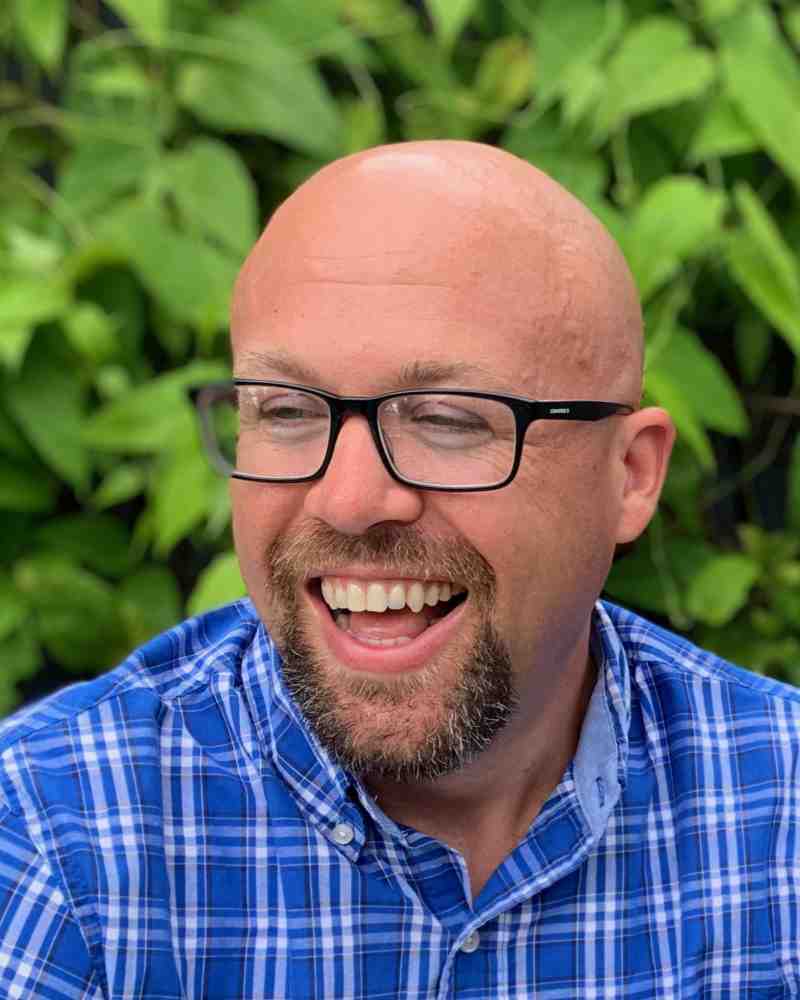Music Professor Nicholas Perna Focuses on Innovative Research

Nicholas Perna researched methods using new technology to promote live musical performances in the midst of the COVID-19 pandemic.
A Mississippi College music professor, Perna has taught voice pedagogy on the Clinton campus since 2015. The Clinton resident is a talented member of the National Association of Teachers of Singing.
In May, Dr. Perna and his research team at three USA institutions began looking for better solutions than Zoom for online music-making.
Following a spring webinar of music teachers discussing coronavirus issues, “most of the singing community knew that singing together was not going to be safe until a vaccine was developed. By that point, we were already busily at work,” Perna said.
Students and colleagues applaud his research that’s getting national attention. The process and equipment needed is explained in a recent Salt Lake City TV story with Dr. Perna quoted. The article states this innovative system of musical collaborations on computers is not quite at the “plug and play” stage. But the research, the story says, is useful and offers unlimited possibilities for the future.
Perna’s research focuses on a process to allow musicians to collaborate in real-time, with no delay or latency.
“This is a ground-breaking concept that has obvious usefulness now and in the future,” says Angela Willoughby, chair of the MC Music Department.
“In these days of concern over the performance of music in a great many settings, using technology to overcome the lack of making music together is necessary now,” Willoughby said. “It also opens doors for collaboration between musicians in virtually any place through the Internet.”
With health protocols in place nationwide – from social distancing to wearing masks – the new technology is more prevalent for musicians. Perna’s students are featured using this technology as they present degree recitals. His collaborator is music professor and pianist Tyler Kemp.
“Not only are the students heard in performance, they are seen collaborating with a pianist (in separate rooms) with an audience viewing in our recital hall and live-streamed on YouTube,” Willoughby said. “While they are performing, they are also being exposed to cutting-edge technology in their discipline.”
Graduate student Sallie Streeter noted many prestigious universities across the nation published reports several months ago about their new latency discovery with Zoom. But Dr. Perna took things a step further.
“Dr. Perna knew Zoom couldn’t be the end goal for real-time music-making. He formed a team of researchers, dedicated his summer to this project, and brought it to fruition at the beginning of the fall semester,” Streeter said.
The MC music student was directly involved. “I was having real-time, live voice lessons in August via SoundJack (audio) and LiveLab (video). The only difference is that we were all in separate rooms (Perna in his studio and Tyler Kemp in his office),” she said. “As a grad student, it’s really cool to be getting hands-on experience with this cutting-edge technology,” adds Streeter, a Clinton resident.
Until the pandemic ends “and we can safely resume in-person music-making (and I long for that day), SoundJack is the next best thing.”
Dr. Perna is featured in the November 15 story by reporter Peter Rosen of KSL TV of Salt Lake City, Utah on the problem of latency. He calls it the delay between when a sound, like a note, is produced and when someone on the other ends of a Zoom call hears it. When instructor Seth Keeton looked for a way to safely teach his voice students at the University of Utah, he turned to the SoundJack system.
In the story, Perna says JackTrip and SoundJack are the two most stable programs to utilize.
Focused on the research for months, Perna teamed with professors from the New England Conservatory of Music in Boston, Stetson University in Florida and Clarke University in Iowa. Once a performer on stage with the Mississippi Opera in 2018, the MC professor maintains a music studio in Clinton.
Sign-up For Our Newsletter
Get the latest news about Mississippi College delivered right to your inbox by subscribing to the Along College Street e-newsletter.


